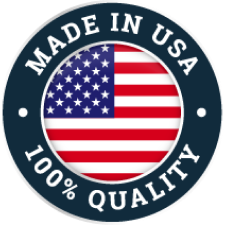
Industrial air filtration plays a vital role in ensuring the health and safety of workers, the environment, and the overall efficiency of industrial processes. However, despite its significance, there are several misconceptions surrounding this critical technology. In this blog, we will debunk some of the most common misconceptions about industrial air filtration and shed light on its importance in maintaining a sustainable and safe working environment.
Misconception 1: Air Filtration is Only for Compliance
One of the most prevalent misconceptions is that industrial air filtration is solely necessary to comply with environmental regulations. While meeting compliance standards is essential, it is only part of the bigger picture. Proper air filtration goes beyond compliance; it improves air quality, safeguards employee health, enhances productivity, and reduces the environmental impact of industrial operations. Investing in advanced air filtration systems demonstrates a commitment to environmental responsibility and the well-being of the workforce.
Misconception 2: Industrial Air Filtration is a One-Size-Fits-All Solution
A common misconception about industrial air filtration is that there is a universal, one-size-fits-all solution that can effectively handle air quality concerns across all industries. However, the reality is that each industrial setting has its unique air quality challenges, varying types of contaminants, and specific filtration requirements. Relying on a generic air filtration system without considering the specific needs of the facility can lead to inadequate filtration, compromised air quality, and potential health and safety risks for employees.
Misconception 3: Air Filtration is Expensive and Inefficient
Another common misconception is that air filtration systems are prohibitively expensive and drain significant energy resources. While advanced filtration technologies may have higher upfront costs, they prove to be cost-effective in the long run. By preventing equipment contamination, reducing maintenance expenses, and improving worker productivity, these systems contribute to overall savings. Additionally, technological advancements have led to more energy-efficient air filtration solutions, minimizing energy consumption while maintaining high filtration performance.
Misconception 4: Routine Maintenance Suffices for Air Filtration Systems
Many industrial facilities make the mistake of assuming that periodic maintenance is enough to ensure their air filtration systems function optimally. However, neglecting regular filter replacements and system inspections can lead to reduced efficiency and compromised air quality. Proper maintenance is essential to maximize the lifespan of filters and ensure consistent performance. Moreover, scheduled maintenance helps detect potential issues early on, preventing costly breakdowns and ensuring uninterrupted operation.
Misconception 5: Air Filtration is Not Crucial for Indoor Air Quality
Some industries believe that outdoor air pollution has a more significant impact on health than indoor air pollution. However, studies have shown that indoor air can be significantly more polluted than outdoor air. In industrial settings, various contaminants, such as dust, chemicals, and fumes, can be generated, posing health risks to employees if not adequately filtered. Poor indoor air quality can lead to respiratory issues, allergies, and long-term health problems for workers, ultimately affecting productivity and increasing absenteeism.
Addressing misconceptions about industrial air filtration is crucial for promoting its widespread adoption and understanding its importance. Proper air filtration is not just about compliance; it is an investment in the well-being of employees, the efficiency of industrial processes, and the preservation of the environment. By choosing the right filtration systems, investing in maintenance, and staying updated on the latest technologies, industries can create a safer and healthier work environment while also reaping long-term cost benefits. Prioritizing industrial air filtration is a responsible and sustainable approach that benefits everyone involved.
